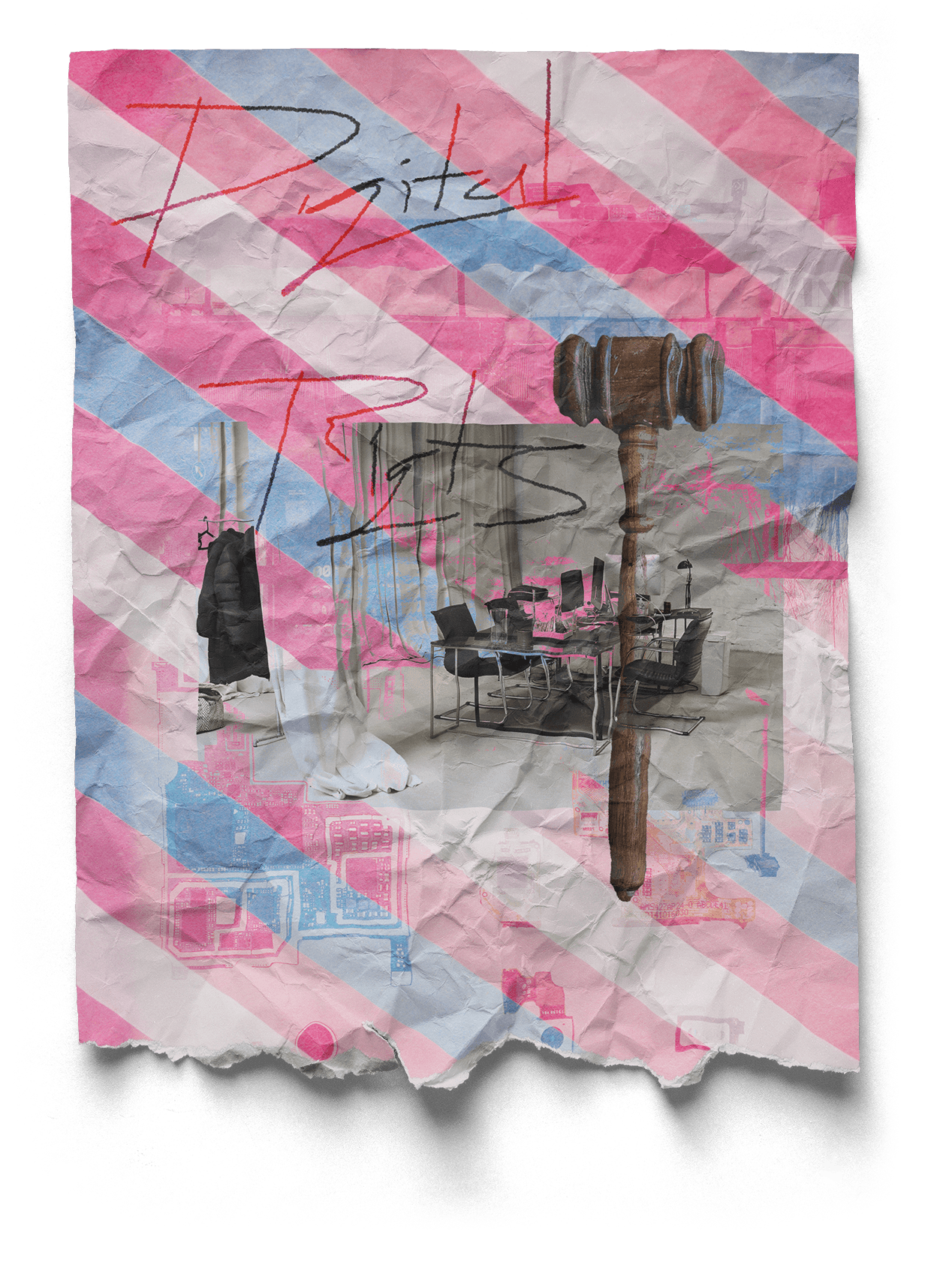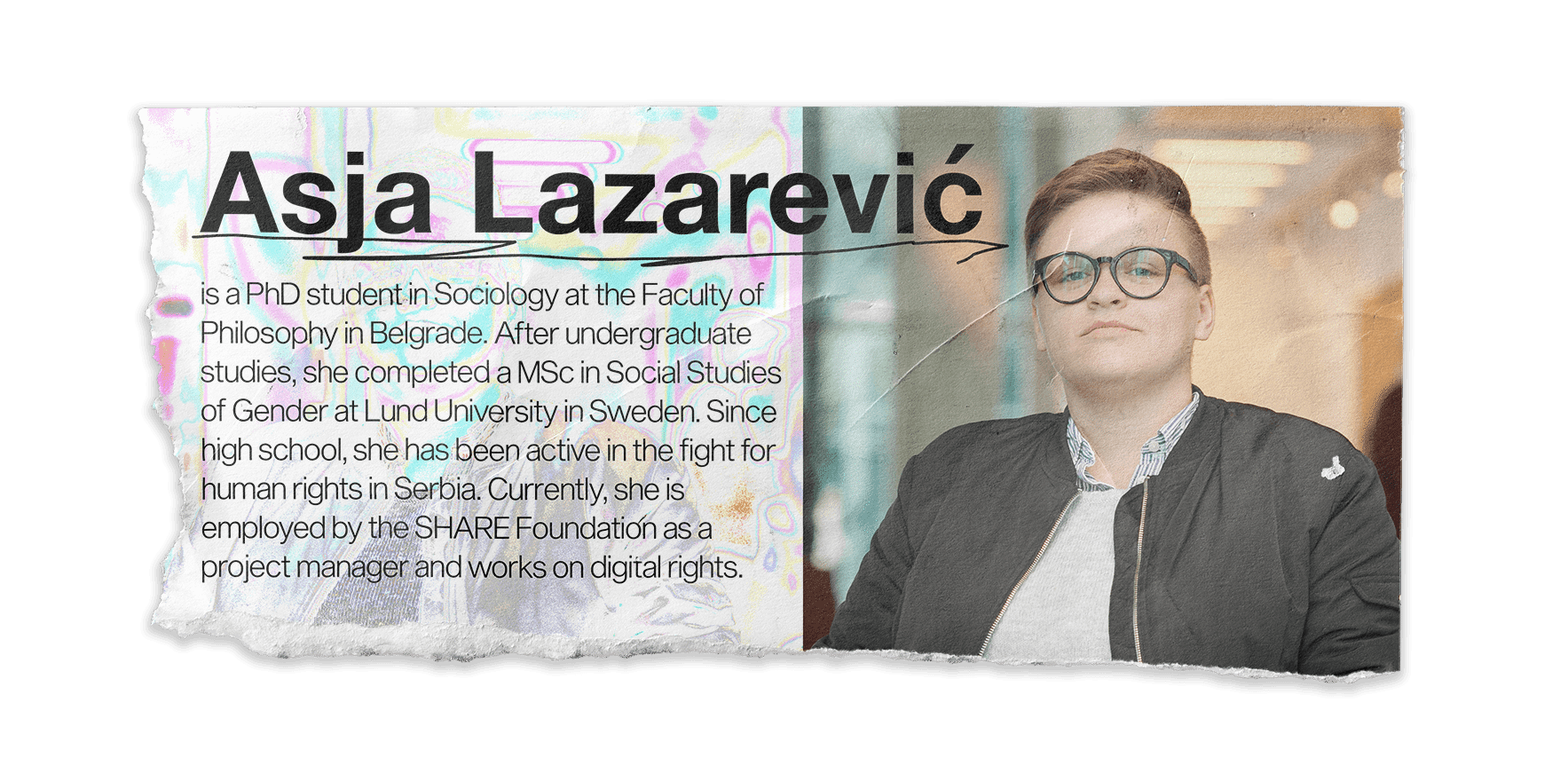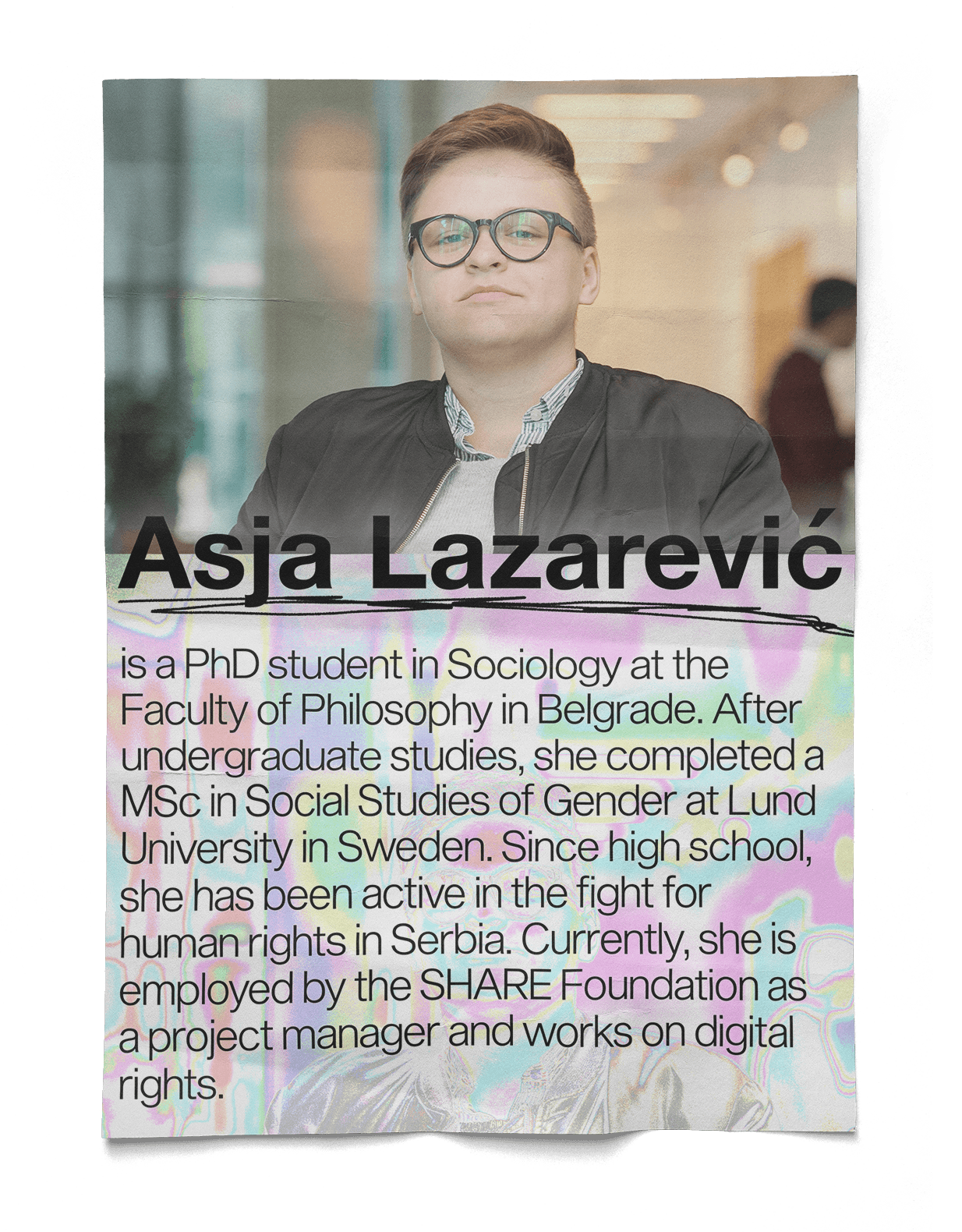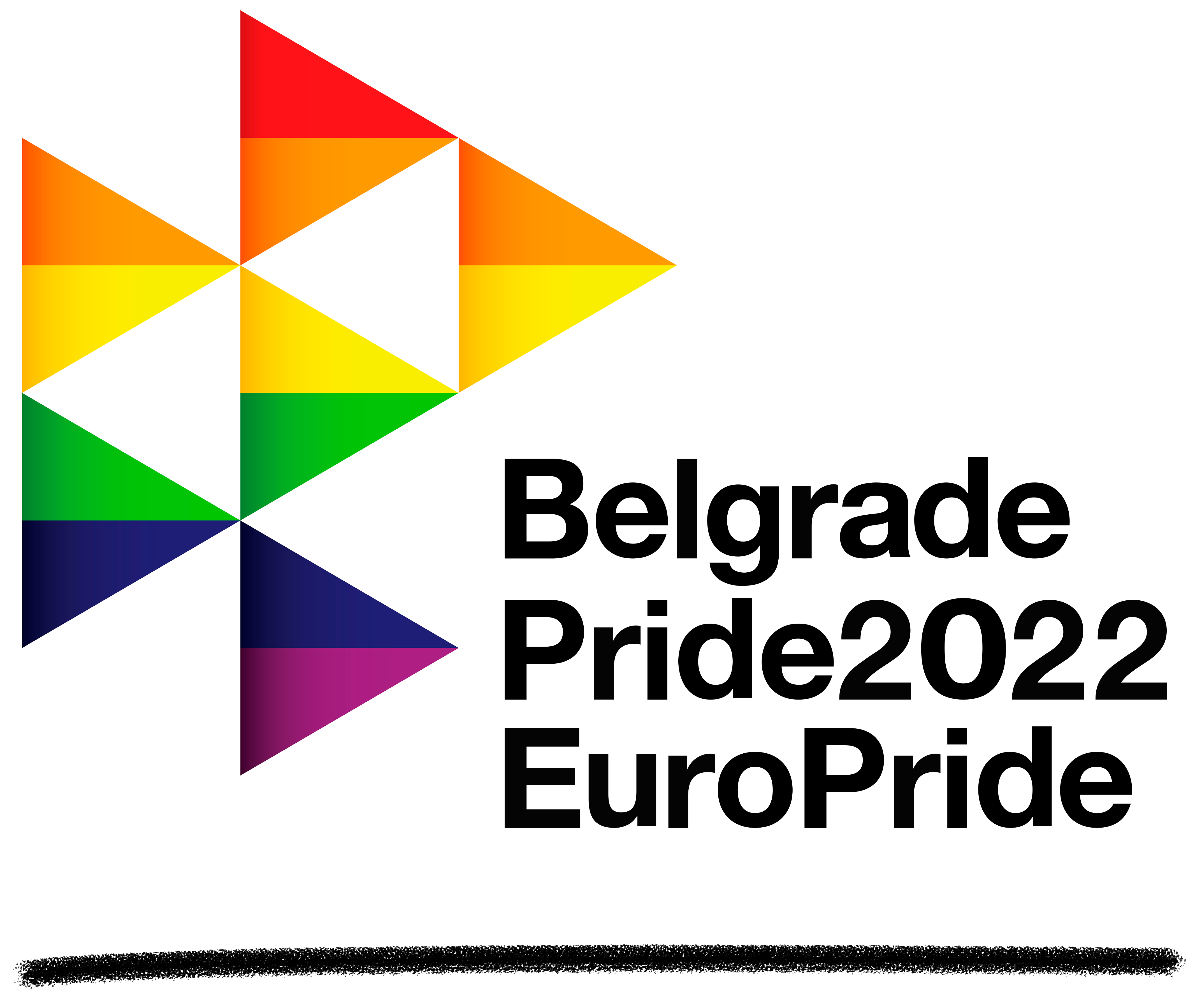Digital rights of vulnerable groups 1


During Pride Week and the Human Rights Conference in September 2022, a panel Online dating, security and cyber bullying - Staying safe on the Internet will be organized by the SHARE Foundation and, as the name suggests, will concern the digital security of LGBTI+ people. On this occasion, we are talking to SHARE Foundation researcher, Bojan Perkov.
Bojan, what do we mean by digital rights?
Digital rights and freedoms, above all, include all human rights, generally recognized by international standards and conventions, and national legislation that aligns with it. What gives them a digital component is that they are enjoyed by people through information and communication technologies, such as the Internet, mobile phones, applications, social networks and more. These are, for example, the right to freedom of expression, the right to privacy, the right to equal treatment, therefore, protection from discrimination, and many other rights that are related and arise from those rights we have mentioned. For example, the right to privacy is closely related to the right to freedom of expression, and vice versa. You may not feel free to express your opinion in an anonymous way, because due to increased surveillance of the Internet by the state, your identity may be easily found and you may have direct consequences, e.g. be beaten, arrested or even killed, due to your opinions. This is a huge problem experienced by many activists around the world, not only by those belonging to the LGBT population, but also by people who generally deal with human rights, investigative journalism, and are fighting for some communities that are particularly marginalized. We can see that this is the biggest problem in countries that have a very problematic state of human rights and authoritarian regimes, but we can also see such problems in countries with developed democratic standards at an increasing rate.
Digital rights, therefore, are human rights in the digital environment.
Yes, in the context of the use of technology, the Internet, various Internet services and communication, therefore, everything where we have any connection between technology and some behaviors of society and people, to whom these rights are guaranteed and for whom they are protected.
Are the digital rights of vulnerable groups particularly at risk?
Their vulnerability also spills over into digital rights, because today everything is so mediated by technology that there is no definitive separation between the physical and online worlds. Except in some extremely rare cases, where there is no mobile phones, where people actually live without those devices, Internet and infrastructure that enables the technical functioning of these technologies.
What are the biggest problems related to the digital rights of vulnerable groups like the LGBTI+ population?
There are three biggest problems that I can see. They refer, first of all, to hate speech and discrimination that are carried out via the Internet, therefore, more easily and frequently than ever before. It seems that people are much more courageous to attack people in the digital sphere, to threaten, to belittle, to insult people who belong to the LGBTI+ population, and most often without even thinking about the fact that there are certain consequences for such behavior. Whether the threat is made in a direct conversation on the street or through a message on Instagram, on Facebook, on any other social network or platform, or on TikTok, which is especially popular among young people, there is also a certain type of legal responsibility and threats are a crime regardless of the method used. Members of marginalized and vulnerable social groups are attacked because of their personal characteristics, and this also affects their rights to freedom of expression, assembly, association, precisely because of the chilling effect. That is, if they say something about, for example, the Pride Parade, they can be attacked and their physical integrity can be threatened. Especially if they are individuals who stand out for their work, who are known to the public and the community, and are someone who is quite often targeted because of certain attitudes.
Other forms of endangering vulnerable groups can be linked to personal data.
What is personal data?
It is any data based on which it can be identified who we are. This is not only data such as our email address, date of birth, first and last name. A list of series that you watched most often, e.g. the information that Netflix or HBO has about you, can also represent an example of processing personal data, because in this way these companies collect data about your behavior that they can analyze. The collection, processing and analysis of data is the main driver of the digital economy. We all know that companies like Meta, Google, Apple, etc., one of the most influential and powerful companies in the world, which provide services to a huge number of people and, in most cases, people receive these services in exchange for providing their personal data. For example, Google simply works in such a way that everything you Google, search, watch on its services like YouTube, is collected, processed and analyzed, and monetized by those big platforms through advertising. So as far as that is concerned, we have a situation where numerous applications and services are carelessly installed, without even looking at their privacy policy, and we as users should be clearly and precisely informed about how our data is collected and what the purpose of data collection is. Given that data such as sexual orientation or gender identity are personal, and very sensitive data, and thus they can be misused, that is, processed in inadequate ways. Moreover, data about the locations we visit can threaten our privacy in some way. Let's say that you constantly have location on our phone turned on and that you frequently go to gay clubs and bars. Location can give those data collection companies some cues based on which they can serve you ads for things they think you will be interested in. It puts you at significant risk because it affects your right to privacy and reveals some part of your life that you might not want to share with someone you do not know.
Thirdly, we have the situation with digital security, which is also inextricably linked to our personal data. You, for example, can have an Instagram profile that is not opened under your real name, without a profile picture, and are socially engaged in a human rights movement. You do not have proper security measures in place, like two-factor authentication, you have a password that is based on your date of birth, or something else that someone could easily guess. So, if the password is a sequence of numbers e.g. 123456, you may end up in a situation where someone has easily gained an unauthorized access to your account, sees all your private correspondence, publishes photos and content in your name, and in this way they can cause enormous damage to you and to the people you are close and connected with. It can be reputation damage, and some other situation that can threaten your privacy, disclose gender identity or sexual orientation that you tried not to express publicly, precisely because of the fear of repercussions or because you have already been attacked in the physical environment. For this reason, it is important to keep in mind what preventive measures you can take when it comes to the security of your accounts, as this can particularly affect organizations and individuals dealing with human rights. For example, in the case of organizing a protest or a gathering, there can be serious consequences if someone manages to gain unauthorized access to your account. That way, they can read your correspondence and compromise the entire community you are connected to, without you possibly even being aware that someone has accessed your account.
You can read more about preventive measures in the following blog pos, i.e. the second part of the interview with Bojan.







